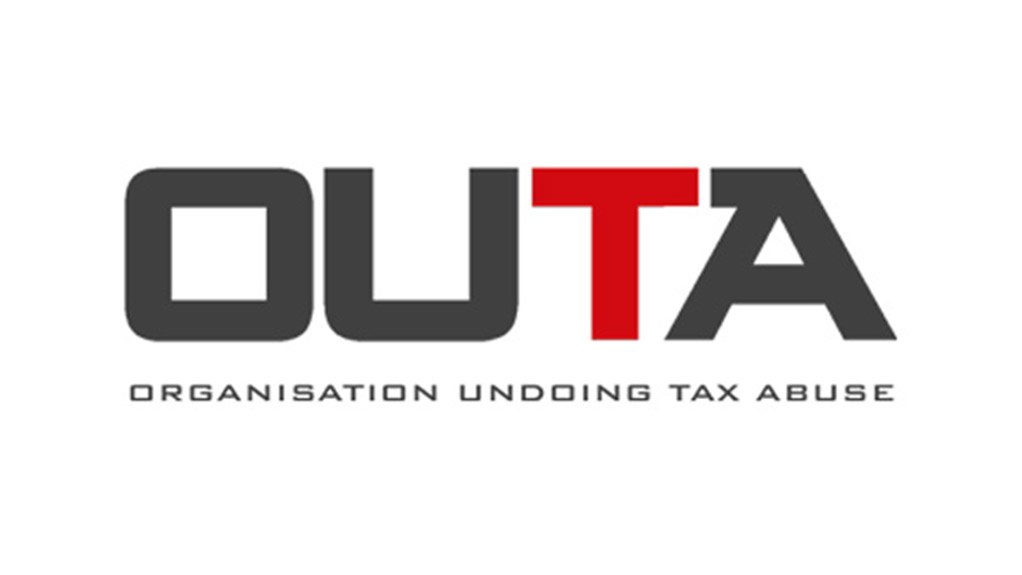Why is e-tolls debt so high, asks Outa
The Organisation Undoing Tax Abuse (Outa) says it would like to know how the Gauteng Freeway Improvement Project (GFIP) debt escalated to the amount now proposed to be paid off by national and provincial government.
Outa’s submission to Parliament on the Medium-Term Budget Policy Statement 2022 asks for explanation of the South African National Roads Agency Limited (Sanral) debt and the GFIP (or e-tolls) portion of this debt.
“While we would have preferred that government had not embarked on the costly exercise of implementing e-toll infrastructure in the first place, which would have negated the exorbitant amounts paid to the collection agency, we welcome the resolution of this matter and the acknowledgement that Gauteng commuter roads (as social infrastructure) should be funded by the fiscus,” says Outa.
“However, we would like improved transparency and clarity on these finances before the Sanral bailouts are finalised.”
Outa has made submissions to the Standing and Select Committees on Appropriations, on the 2022 Adjustments Appropriation Bill and the 2022 Special Appropriation Bill.
The Adjustments Appropriation Bill includes a transfer to Sanral (made in July) of R3.74-billion for the GFIP, and a proposed transfer of R23.736-billion through the Special Appropriation Bill, notes Outa.
The national government has indicated it will pay 70% of Sanral’s debt and that the Gauteng government will pay 30%, while it will also fork out for the ongoing maintenance of the GFIP roads, thereby effectively ending the e-tolls collection mechanism in Gauteng.
Gauteng has since said that it will pay 30% of the GFIP debt (not the full Sanral debt), calculating its share as R12.9-billion.
“In our submission, we note the cost of the GFIP upgrade was R20-billion and that Sanral borrowed R20-billion to fund this,” says Outa.
“We also note that, since 2011/12, national government has authorised government grants totalling R30.053-billion to Sanral, explicitly for the GFIP. This includes the R3.74-billion transferred in July, but excludes the proposed R23.736-billion transfer.
“However, the GFIP debt remains inexplicably high, as National Treasury said this was R43.031-billion in March.”
Article Enquiry
Email Article
Save Article
Feedback
To advertise email advertising@creamermedia.co.za or click here
Press Office
Announcements
What's On
Subscribe to improve your user experience...
Option 1 (equivalent of R125 a month):
Receive a weekly copy of Creamer Media's Engineering News & Mining Weekly magazine
(print copy for those in South Africa and e-magazine for those outside of South Africa)
Receive daily email newsletters
Access to full search results
Access archive of magazine back copies
Access to Projects in Progress
Access to ONE Research Report of your choice in PDF format
Option 2 (equivalent of R375 a month):
All benefits from Option 1
PLUS
Access to Creamer Media's Research Channel Africa for ALL Research Reports, in PDF format, on various industrial and mining sectors
including Electricity; Water; Energy Transition; Hydrogen; Roads, Rail and Ports; Coal; Gold; Platinum; Battery Metals; etc.
Already a subscriber?
Forgotten your password?
Receive weekly copy of Creamer Media's Engineering News & Mining Weekly magazine (print copy for those in South Africa and e-magazine for those outside of South Africa)
➕
Recieve daily email newsletters
➕
Access to full search results
➕
Access archive of magazine back copies
➕
Access to Projects in Progress
➕
Access to ONE Research Report of your choice in PDF format
RESEARCH CHANNEL AFRICA
R4500 (equivalent of R375 a month)
SUBSCRIBEAll benefits from Option 1
➕
Access to Creamer Media's Research Channel Africa for ALL Research Reports on various industrial and mining sectors, in PDF format, including on:
Electricity
➕
Water
➕
Energy Transition
➕
Hydrogen
➕
Roads, Rail and Ports
➕
Coal
➕
Gold
➕
Platinum
➕
Battery Metals
➕
etc.
Receive all benefits from Option 1 or Option 2 delivered to numerous people at your company
➕
Multiple User names and Passwords for simultaneous log-ins
➕
Intranet integration access to all in your organisation



















